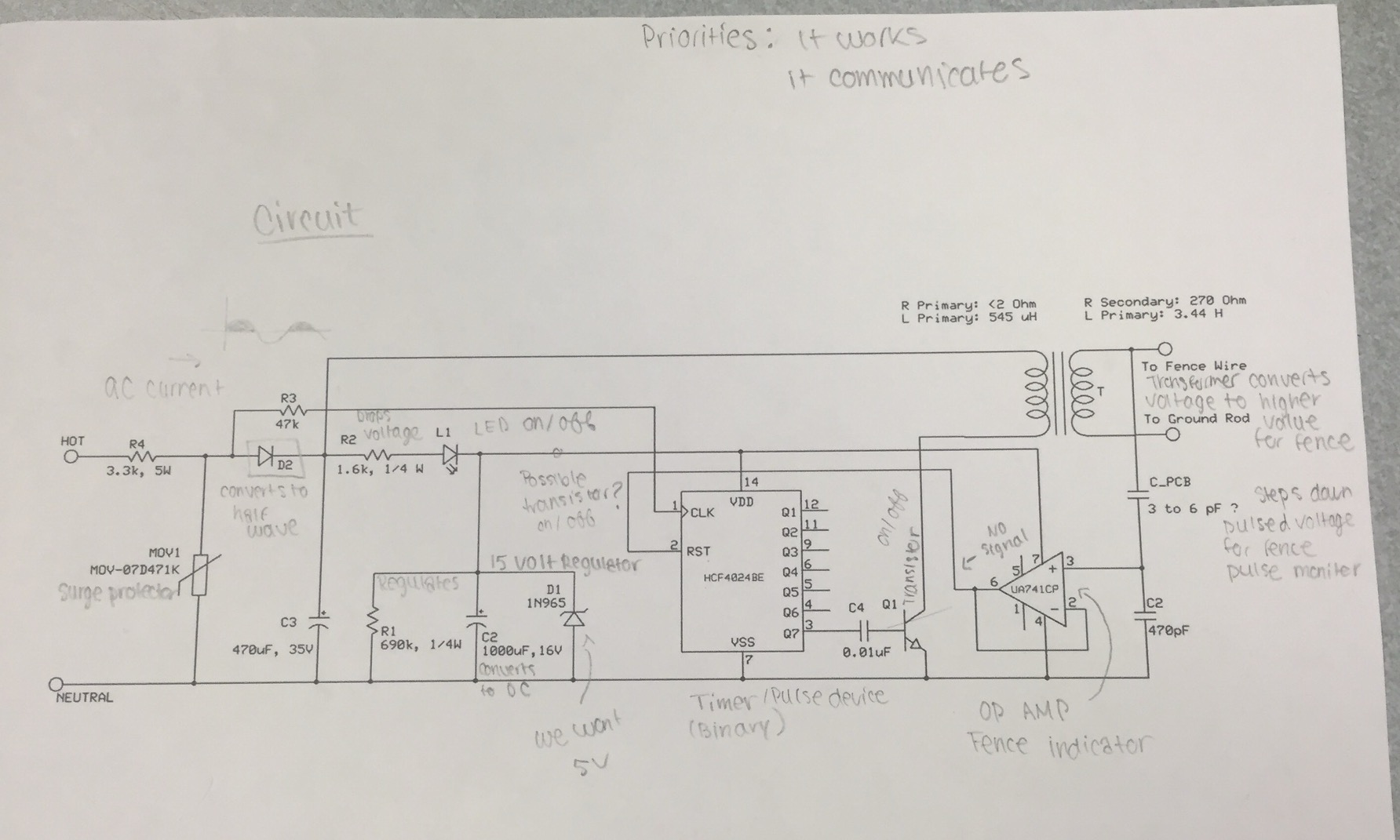Difference between revisions of "Electric fence"
From RAWiki
| Line 5: | Line 5: | ||
Current electric fence technology has several pain-points that we would like to alleviate: | Current electric fence technology has several pain-points that we would like to alleviate: | ||
| − | + | #. Cost is too high | |
| − | + | #. Designs are not open-source making repairs difficult | |
| − | + | #. Electric fence energizers are not connected and do not provide feedback - the only way you know the fence is down is the animals are out - a potentially dangerous and costly problem, fences should send users a text message when they are down. | |
| − | + | #. Little control over the modes of operation: training mode (more rapid pulsing), energy saving mode (slower pulsing), night-time mode, mode for pigs (lower power needed). | |
| − | + | #. Integrate with water sensors that can tell the farmer when animals are out of water. | |
[[File:Efenceschematic.jpeg]] | [[File:Efenceschematic.jpeg]] | ||
Latest revision as of 02:48, 10 January 2018
Portable electric fencing has become an essential tool for the promotion of Regenerative grazing - a key technology for reversing desertification and sequestering carbon in soils.
This technology has the potential to increase meat production per acre while accruing positive benefits to the environment and freeing traditional pastoralists from the burden of standing with their animals all day as they graze.
Current electric fence technology has several pain-points that we would like to alleviate:
- . Cost is too high
- . Designs are not open-source making repairs difficult
- . Electric fence energizers are not connected and do not provide feedback - the only way you know the fence is down is the animals are out - a potentially dangerous and costly problem, fences should send users a text message when they are down.
- . Little control over the modes of operation: training mode (more rapid pulsing), energy saving mode (slower pulsing), night-time mode, mode for pigs (lower power needed).
- . Integrate with water sensors that can tell the farmer when animals are out of water.
